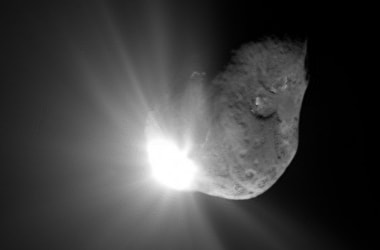
NASA has announced that it will provide complete funding under the Discovery Program for two missions focusing on different kinds of asteroids.
A mission called
Lucy will take off in 2021 to study a plethora of asteroids, including one in the main asteroid belt between Mars and Jupiter, along with size others among space rocks in Jupiter's orbit.
A mission
Psyche will be launched in 2023 to visit a type of asteroid never seen closely before - a huge metallic object called 16Psyche that corresponds in composition to the core of the earth.
NASA will also provide funding for the Near Earth Object Camera designed to look for potentially hazardous asteroids in the region of space closest to the orbit of the earth.
Discovery Program missions are low-cost space science efforts, capped at USD 450 million. Before, selected discovery missions included:
- Messenger probe to Mercury
- Dawn probe to the asteroids Vesta and Ceres
InSight lander, which is due to begin its trip to Mars next year.
Lucy, Psyche and NEOCam were among the finalists for this year. Two missions to Venus– DAVINCI and VERITAS– lost out on the round, but could be reconsidered in the future.
Psyche MissionThis mission aims to explore one of a kind metal asteroid 16Psyche. It will be launched in 2023. Most steroids are rocky or covered in ice. 16Psyche is thought to be composed of nickel and iron, much like the core of the earth.
This is a one of a kind object in the main asteroid belt. 16Psyche is a 130 mile wide chunk of material thought to be composed of metallic iron and nickel, and could be the exposed core of a Mars sized planet which lost its outer layer in collisions billions of years ago.
Mission schedule calls for launch in Oct 2023, earth gravity assist manouver in 2024, a Mars FlyBy in 2025 and arrival at the asteroid in 2023.
The probe will study the asteroid's composition, mass distribution and magnetic field over a two year period.
16Psyche is the only known object of its kind in the solar system and the only way humans will visit a core.
Psyche also intrigues asteroid miners because the composition of the metal bearing space object could pave the way for other resources.
LucyLucy mission has been
named after a famous, critical hominin
fossil found in Ethiopia in 1974. It will be launched in 2021 and involves sending robotic spacecrafts to study Jupiter's trojan asteroids.
These asteroids are believed to be relics of an earlier era in the history of the solar system. Lucy is due for launch in Oct 2021 and will reach the first destination in the main belt in 2025. The problem will study six Jupiter Trojan asteroids between 2027 and 2033.
Trojans are thought to be remnants of the early solar system that were gravitationally captured at balance points in the orbit of Jupiter.
The small bodies are fossils of planet formation and that is Lucy has been named after a fossil.
Lucy's target in the main asteroid belt is Donaldjohanson, in memory of the paeleontologist who discovered the famous 3.2 million year old fossil in 1974.
Other targets include Trojan asteroid Eurybates, and the binary trojan Patroclus-Menoetius.
Discovery Program Missions: Know More- Both the asteroid missions will unravel the origin and evolution of the solar system.
- This puzzle will understand how the sun and its family of planets changed over time and where life could be developed and sustained.
Five proposals were selected initially for this mission, including the following:
i. Deep Atmosphere Venus Investigation of Noble gases, Chemistry, and Imaging (DAVINCI),
ii. Venus Emissivity, Radio Science, InSAR, Topography, and Spectroscopy mission (VERITAS).
iii. Near Earth Object Camera was another project proposed; it has been granted an extra year of funding.
iv. NASA will not be observing bodies with atmospheres.